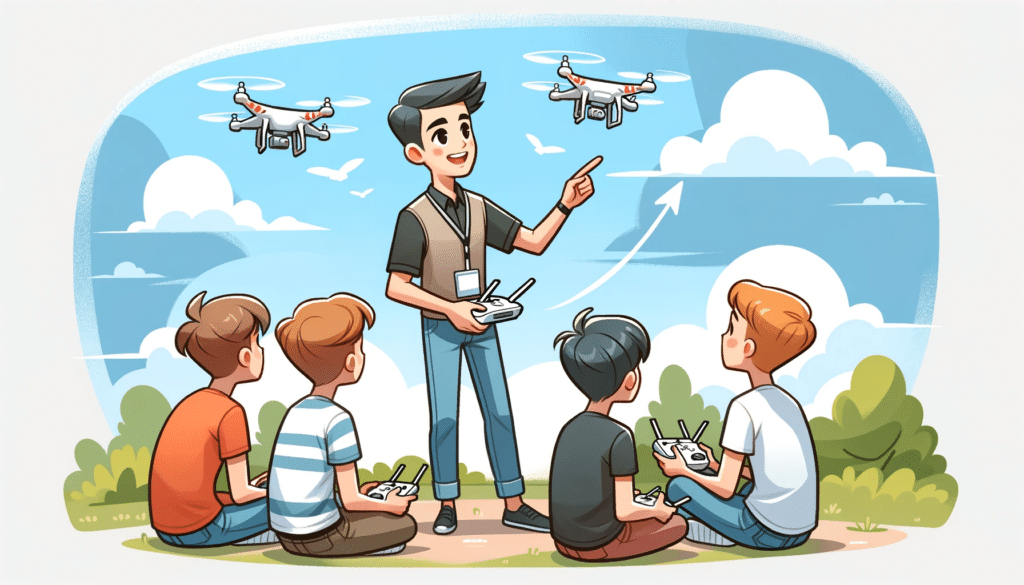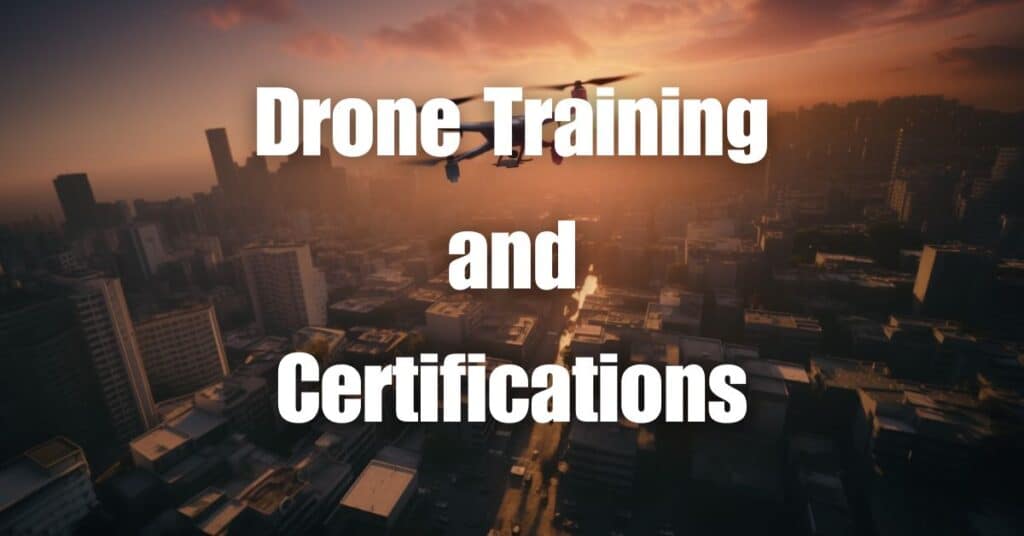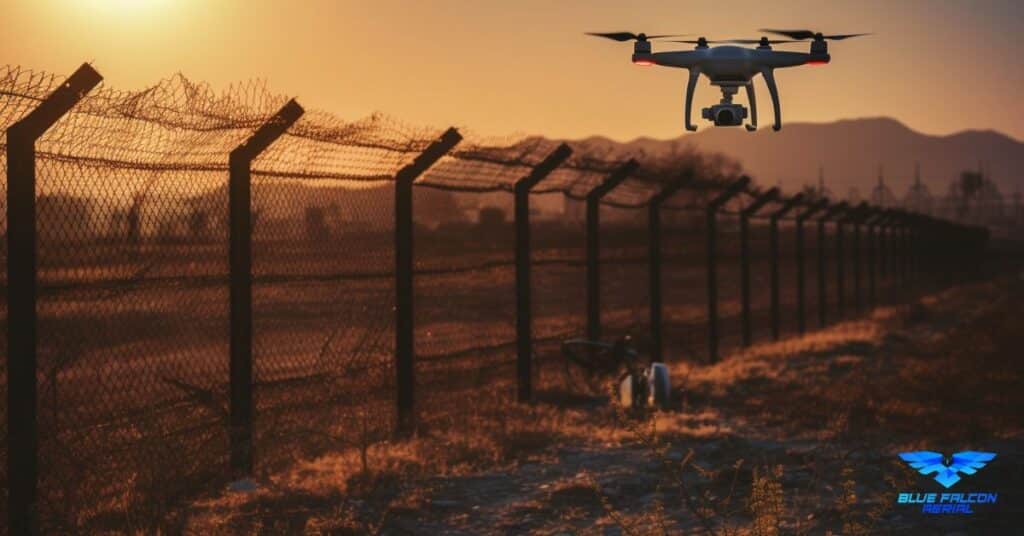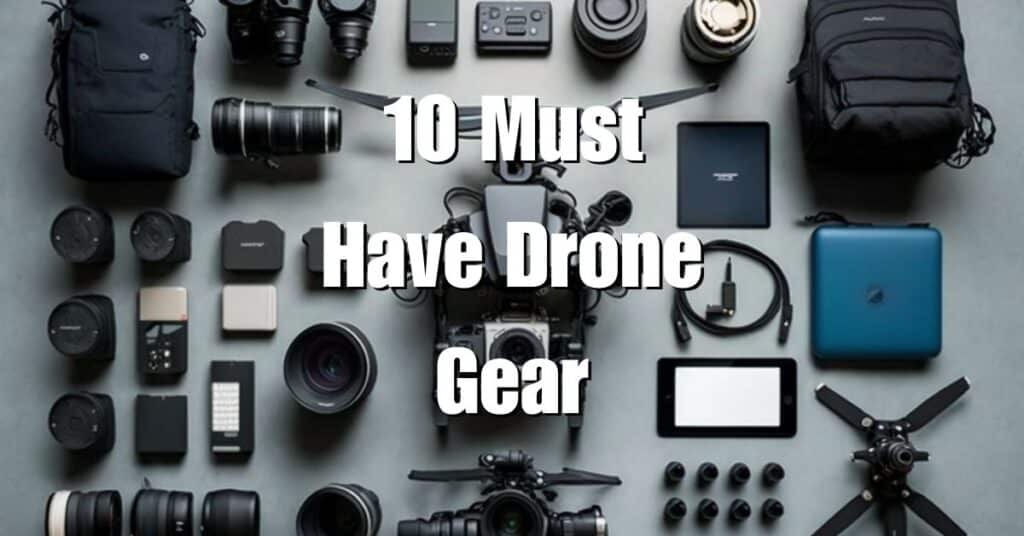From breathtaking aerial photography to advanced agricultural monitoring, drones are opening up new possibilities across various industries. As these high-flying technologies become increasingly integral to modern operations, the demand for skilled drone operators is soaring. This guide delves into the essential realm of drone training and certification, equipping you with the knowledge to not only comply with regulations but to excel in this rapidly evolving field. Whether you’re a hobbyist looking to enhance your skills or a professional aiming to capitalize on the drone revolution, understanding the nuances of drone training and certification is your first step towards mastering the skies.
Key Takeaways
- Drone training and certification are essential for both hobbyists and professionals, ensuring safe and efficient drone operation.
- The drone industry’s growth has led to diverse applications across sectors like photography, agriculture, and public safety, highlighting the need for skilled pilots.
- Certification requirements vary by country but typically include a written exam, practical flight test, and comprehensive knowledge of airspace regulations and safety practices.
- Choosing the right drone training program involves considering factors like accreditation, curriculum, instructors’ expertise, and training mode (online or in-person).
- Preparation for drone certification exams should focus on critical areas such as airspace rules, weather conditions, and emergency procedures.
- Post-certification, there are opportunities for advanced training and specialization in fields like agricultural surveying, search and rescue operations, and cinematography.
- Staying updated with industry trends and continuously developing skills post-certification are crucial for a successful career in drone operations.

The Rise of Drones in Various Industries
Revolutionizing Photography and Film
Drones have dramatically altered the landscape of photography and filmmaking. Gone are the days of expensive helicopter shots; drones now offer a cost-effective way to capture stunning aerial views. Renowned photographers and directors use drones to achieve breathtaking panoramic shots and dynamic action sequences, adding a new dimension to visual storytelling.
Key Industries Benefiting from Drone Photography:
- Cinematography: Revolutionizing camera angles and movement in film production.
- Real Estate: Providing aerial property views, enhancing listings and sales.
- Wedding Photography: Capturing unique perspectives of special moments.
Transforming Agriculture and Environmental Monitoring
In the agricultural sector, drones are more than just flying cameras; they’re data-gathering tools that help farmers optimize their practices. Drones equipped with multispectral sensors provide critical information on crop health, soil quality, and water needs. This precision agriculture approach leads to better crop management, reduced resource use, and increased yields.
Agricultural Applications of Drones:
- Crop Monitoring: Regular aerial surveys for detecting pests, diseases, and nutrient deficiencies.
- Irrigation Management: Identifying areas needing water, reducing wastage.
- Yield Prediction: Estimating crop yields for better market planning.
Enhancing Public Safety and Surveillance
Drones are becoming indispensable in public safety operations. They provide law enforcement and rescue services with a bird’s-eye view during critical missions, from search and rescue operations to crowd monitoring at large events. Drones’ ability to quickly cover large areas and transmit real-time video is proving invaluable in ensuring public safety.
Public Safety Applications:
- Search and Rescue: Locating missing persons in challenging terrains.
- Traffic Monitoring: Overseeing road conditions and managing congestion.
- Disaster Response: Assessing damage and aiding in recovery efforts.
Understanding Drone Training
The Essence of Drone Training
Drone training is not just about learning to fly; it’s about understanding the technology, regulations, and best practices to operate drones responsibly and safely. Quality training programs cover a range of topics, from basic flight controls to advanced navigation techniques, ensuring operators are well-prepared for various scenarios.
Why Proper Training Matters
With the increasing use of drones, the airspace is becoming more crowded. Proper training ensures that drone pilots understand airspace regulations, can handle their drones in different conditions, and are aware of privacy and safety concerns. This is crucial not only for the safety of the operator but also for the general public and other airspace users.
Types of Training Programs
Drone training programs vary widely in scope and depth. Some focus on the basics for hobbyists, while others are designed for commercial drone pilots with a more comprehensive curriculum.
Comparison of Training Programs:
| Type of Program | Target Audience | Key Focus Areas |
|---|---|---|
| Basic Flight Training | Hobbyists and Beginners | Fundamentals of drone operation, basic flight skills |
| Commercial Pilot Training | Aspiring Professional Pilots | Advanced flight skills, commercial regulations, risk management |
| Specialized Training | Specific Industry Professionals | Industry-specific applications (e.g., agricultural monitoring, cinematographic techniques) |
Regulatory Requirements for Drone Pilots
Understanding and complying with local and international drone regulations is a crucial part of drone training. Different countries have varying rules regarding drone flight, which may include no-fly zones, altitude limits, and certification requirements for commercial pilots.
In the next section, we’ll explore the certification process in more detail, providing insights into the various certifications available and how to achieve them.

The Path to Certification
Understanding Certification Requirements
Drone certification is a pivotal step for anyone looking to fly drones commercially. It’s not just about proving your flying skills; it’s about demonstrating a comprehensive understanding of the operational, legal, and ethical aspects of drone usage. Different countries have varying requirements, but most demand a thorough knowledge of airspace regulations, safety practices, and privacy laws.
Key Certifications for Drone Pilots
The most recognized certification in many countries is the equivalent of a commercial drone pilot license. This certification typically involves passing a written exam, demonstrating flight proficiency, and understanding airspace classifications.
Notable Certifications Worldwide:
- United States: Part 107 Certification by the Federal Aviation Administration (FAA)
- United Kingdom: Permission for Commercial Operations (PfCO) from the Civil Aviation Authority (CAA)
- Canada: Advanced Operations Pilot Certificate from Transport Canada
Steps to Acquire Certification
Acquiring a drone pilot certification generally involves several steps:
- Eligibility Check: Ensuring you meet age, health, and legal requirements.
- Knowledge Training: Completing a training course covering all necessary theoretical knowledge.
- Written Examination: Passing an exam that tests your understanding of regulations, safety practices, and flight operations.
- Flight Test: Demonstrating your practical flying skills and safety procedures.
- Application Process: Submitting necessary documents and fees to the relevant aviation authority.
Choosing the Right Training Program
Factors to Consider
When selecting a drone training program, consider the following factors to ensure it meets your needs and goals:
- Accreditation: Ensure the program is recognized by aviation authorities.
- Curriculum: Look for comprehensive coverage of both theoretical and practical aspects.
- Instructors’ Expertise: Experienced instructors provide valuable insights and guidance.
- Equipment and Technology: Access to modern drones and simulation technology is beneficial.
- Reviews and Reputation: Seek feedback from former students about their experiences.
Online vs. In-Person Training
Both online and in-person training programs have their advantages. Your choice will depend on your learning style, schedule, and access to training locations.
Comparison of Training Modes:
| Training Mode | Advantages | Disadvantages |
|---|---|---|
| Online Training | Flexible scheduling, accessible from anywhere, often more affordable | Limited practical experience, requires self-discipline |
| In-Person Training | Hands-on experience, direct interaction with instructors, immediate feedback | Requires travel, fixed schedule, may be more costly |
Enhancing Your Learning Experience
Apart from formal training programs, consider additional resources to enhance your learning:
- Online Forums and Communities: Engage with other drone enthusiasts to share experiences and advice.
- YouTube Tutorials: A wealth of free content is available covering various aspects of drone operation.
- Practice with Simulators: Drone simulators can help hone your skills without the risks associated with real-world flying.
Choosing the right training program is crucial for your success as a drone pilot. In the next sections, we will discuss how to prepare for certification exams and the opportunities available post-certification.

Preparing for Certification
Effective Study Strategies
Preparing for drone certification requires a focused and strategic approach. It’s essential to understand not only how to operate a drone but also the regulations and safety protocols involved.
- Review Course Material Thoroughly: Revisit all the topics covered in your training program. Pay particular attention to areas you find challenging.
- Take Practice Exams: These help familiarize you with the format and style of questions you’ll encounter in the actual exam.
- Join Study Groups: Collaborating with others can provide new insights and help clarify difficult concepts.
Key Areas to Focus On
Certain topics are critical for certification exams. Make sure you have a strong grasp of these areas:
- Airspace Classification and Regulations: Understand the different types of airspace and the rules governing drone flights in each.
- Weather and Atmospheric Conditions: Knowledge of how weather affects drone performance and safety is essential.
- Emergency Procedures: Be prepared for unexpected situations, such as equipment malfunctions or unanticipated environmental conditions.
Important Topics for Drone Certification:
| Topic | Description | Why It’s Important |
|---|---|---|
| Airspace Rules | Understanding airspace structure and restrictions | Ensures safe integration of drones into national airspace |
| Drone Laws and Ethics | Regulations regarding privacy, data protection, and ethical use | Promotes responsible and legal drone operation |
| Technical Knowledge | Proficiency in drone mechanics and maintenance | Essential for ensuring drone performance and safety |
Advancing Your Skills Post-Certification
Exploring Advanced Training Opportunities
After obtaining your certification, consider advancing your skills with specialized training. This can include courses in aerial photography, surveying, 3D mapping, or thermal imaging. Advanced training not only enhances your skillset but also increases your value in the market.
Keeping Up with Industry Trends
The drone industry is rapidly evolving, with new technologies and applications emerging regularly. Stay informed about the latest developments through:
- Industry Publications: Regularly read drone industry news, blogs, and journals.
- Continuing Education: Attend workshops, webinars, and conferences to stay updated and network with professionals.
Opportunities for Specialization
Specializing in a niche area can set you apart in the drone industry. Consider areas like:
- Agricultural Surveying: Using drones for crop monitoring and management.
- Search and Rescue Operations: Specializing in using drones for emergency response and humanitarian missions.
- Cinematography: Developing skills in aerial videography for film and television.
Potential Specialization Areas for Drone Pilots:
| Specialization | Description | Market Potential |
|---|---|---|
| Environmental Monitoring | Using drones to assess ecological conditions and wildlife | Growing demand in conservation efforts |
| Infrastructure Inspection | Drone-based inspection of buildings, bridges, and utilities | Increasing need for efficient, safe inspections |
| Real Estate Photography | Capturing aerial views of properties for marketing | High demand in the real estate market |
By continuously developing your skills and knowledge post-certification, you can stay ahead in the dynamic and exciting field of drone operation. This ongoing commitment to learning and specialization is key to maintaining a thriving career as a drone professional.
As we bring our journey through the realms of drone training and certification to a close, it’s clear that the sky’s potential is as vast as it is high. The pathways to becoming a certified drone operator, though challenging, are filled with opportunities for growth, innovation, and a new perspective on the world. Remember, the journey doesn’t end with certification; it’s merely a launchpad for continuous learning and skill enhancement.
For those eager to delve deeper into the world of drones, especially in building and growing a drone-based business, we invite you to explore Blue Falcon Aerial’s comprehensive guide. This resource is an invaluable extension of your learning journey, offering insights and strategies directly relevant to what you’ve discovered here.
And should you find yourself in need of expert drone services, or if you have questions that extend beyond the scope of this guide, don’t hesitate to reach out to us at Blue Falcon Aerial. Our team of professionals is always ready to help you elevate your drone endeavors, ensuring you not only meet but exceed your lofty aspirations. Fly high and fly safe!




